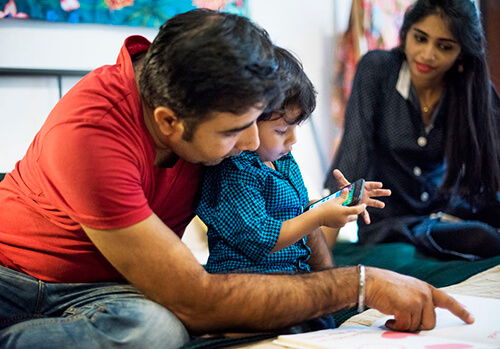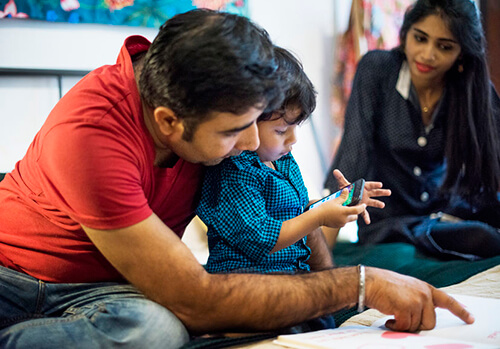Anand is a restless 9-year-old boy and is in the habit of constantly moving his hands. He must move his hands about when he speaks. No amount of stopping by the parents helped. They spoke to the teachers at his school. The teachers then started to tell Anand not to move his hands and he was scolded publically in front of the class if he did it. Anand seemed unhappy, but his hand movement stopped. Simultaneously, his grades also dropped. The parents and teachers were unable to connect the two phenomena. The parents approached a counselor to find out what could be the cause of Anand’s dropping grades (after all they were laying the same amount of attention to his studies as before). Was there a problem with their child’s development?
The counselor tried to establish the changes that had taken place in Anand’s environment. She found that he had been unhappy about not being allowed to move his hands while talking. So she asked his teacher if moving Anand’s hands in class was actually troubling the other children. The answer to this was “no”. So it was decided that Anand‘s hand movement should not be curtailed. Because it was actually helping him concentrate and form his words while he spoke. As long as hyperactivity and fidgeting are not accompanied by impairment, there is no need to fear the same. We asked Anand to hold a book to keep his hands busy. At the same time, we started rewarding him each time he didn’t show the same habit. He is happy again and his grades are back to where they were.
Click here for Full Article on Touching and Fiddling with Things
Top Questions on Touching and Fiddling with Things








